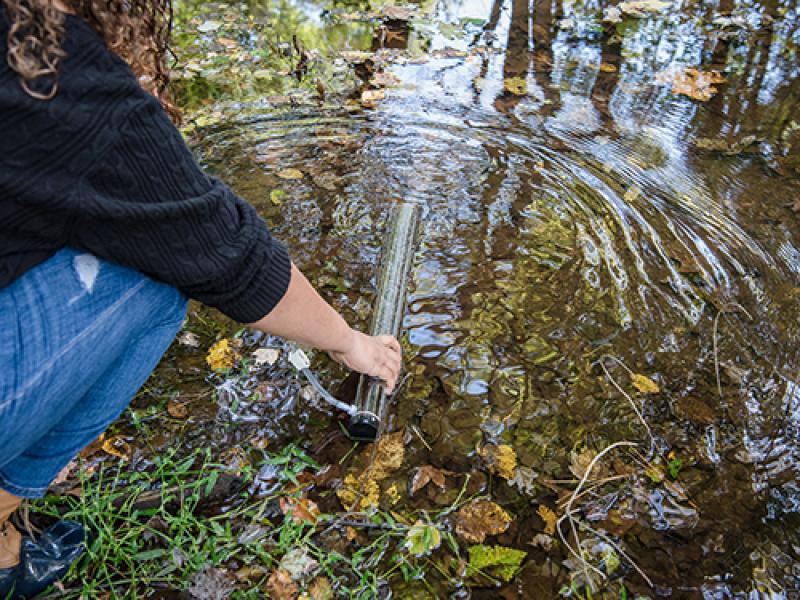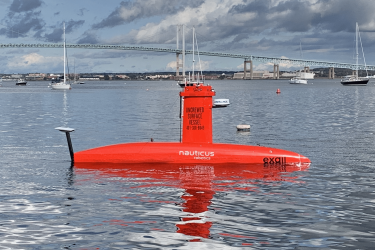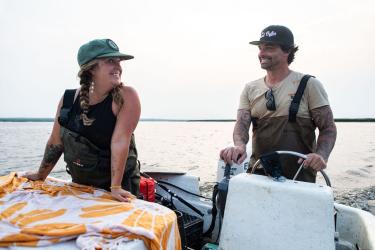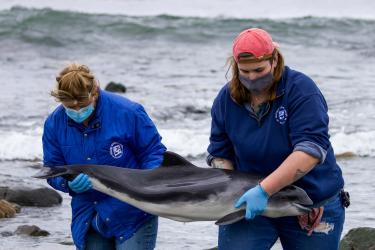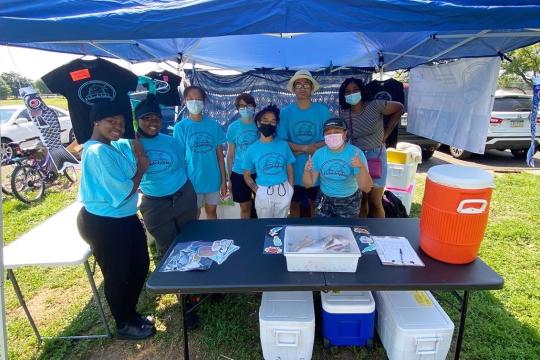NOAA has selected four new projects to receive a combined total of $480,375 in FY20 funding as part of the Chesapeake Bay-Watershed Education and Training (B-WET) program. Including funding for projects continuing from previous years, FY20 funding totals more than $2.6 million. The new projects are based in New York, Pennsylvania, Maryland, and Virginia.
These grants will reach new parts of the Chesapeake watershed to help them build their capacity to deliver outstanding environmental education. The goal of capacity building is to ensure that school districts’ environmental literacy programs are supported by trained partners and educators. Capacity building also aims to have incentives and support systems that foster the development of student and teacher programs. All of this creates a strong foundation for the student and teacher environmental education programs that B-WET traditionally supports. The grants will also focus on training preservice teachers to deliver meaningful watershed educational experiences (MWEEs).
In addition to the new grants, $2,165,731 will support 18 continuing projects in Virginia, Maryland, and Pennsylvania, enabling nonprofit organizations and universities to partner with school districts to implement Meaningful Watershed Educational Experiences that will reach more than 23,000 students. These MWEEs center on real-world issues and vary across projects, ranging from engaging students in assessing how their schoolyard affects tributaries of the Susquehanna River to understanding how rising sea levels will affect biodiversity on the Eastern Shore of Virginia. NOAA is working with grantees and partners to explore creative and innovative ways to implement environmental education during the next year and beyond.
The FY20 capacity-building projects are:
- The Stroud Water Research Center in Avondale, Pennsylvania, will receive $85,000 to conduct its project, “Expanding Environmental Literacy and MWEE Implementation Capacity across Pennsylvania.” Through this project, Stroud and the Pennsylvania Department of Education will work together to build capacity for environmental literacy and Chesapeake Bay watershed stewardship in the Commonwealth by expanding the inclusion of Meaningful Watershed Educational Experiences in Pennsylvania schools and in partner organizations. The project intends to reach 1,000 school administrators; staff and classroom teachers; pre-service teachers and nonformal educators from environmental education provider nonprofit organizations; parks; and related organizations.
- The Virginia Institute of Marine Science in Gloucester Point, Virginia, will receive $83,437 for its project, “Virginia Teachers Innovating and Designing Experiential Science.” This two-year project will be led by educators from the Chesapeake Bay National Estuarine Research Reserve and the Virginia Sea Grant Marine Advisory Program. VIMS and partners will provide MWEE professional development opportunities including workshops, summer institutes, and webinars for approximately 120 Virginia pre-service teachers and 6 faculty at several schools of education in Virginia.
- The Otsego County Conservation Association in Cooperstown, New York, will receive $70,080 for its project, “Chesapeake Bay Headwaters Educational Ecosystem.” This three-year project is designed to engage and educate teachers on how to integrate and perform Meaningful Watershed Educational Experiences in their classrooms throughout the New York State portion of the Chesapeake Bay watershed. OCCA will create and manage professional development sessions, including summer institutes and one-day training sessions that will reach 200 teachers, 75 MWEE outreach “envoys,” and two curriculum specialists.
- The Chesapeake Bay Trust in Annapolis, Maryland, will receive $241,858 for its project, “Environmental Education Capacity Building in the Chesapeake Region: A Regional Outdoor Learning Network Initiative and Mini-Grants Program Effort in Partnership with NOAA.” The Chesapeake Bay Trust will provide mini-grant funding and training to build capacity and support regional school districts and nonformal educators as they design and sustain systemic MWEEs and will also help formal and nonformal educators facilitate student-centered MWEEs. The Trust expects to engage at least 900 formal educators, 135 nonformal educators, 110 school administrators, and school districts in Maryland, Washington, D.C., Virginia, Pennsylvania, Delaware, and West Virginia.
Whether working with students directly or providing professional development to educators, B-WET grants empower students to investigate local and global environmental issues that affect their lives, choices, and communities. Students identify actions to address these issues, enabling them to help to understand, protect, and restore their local watershed.
